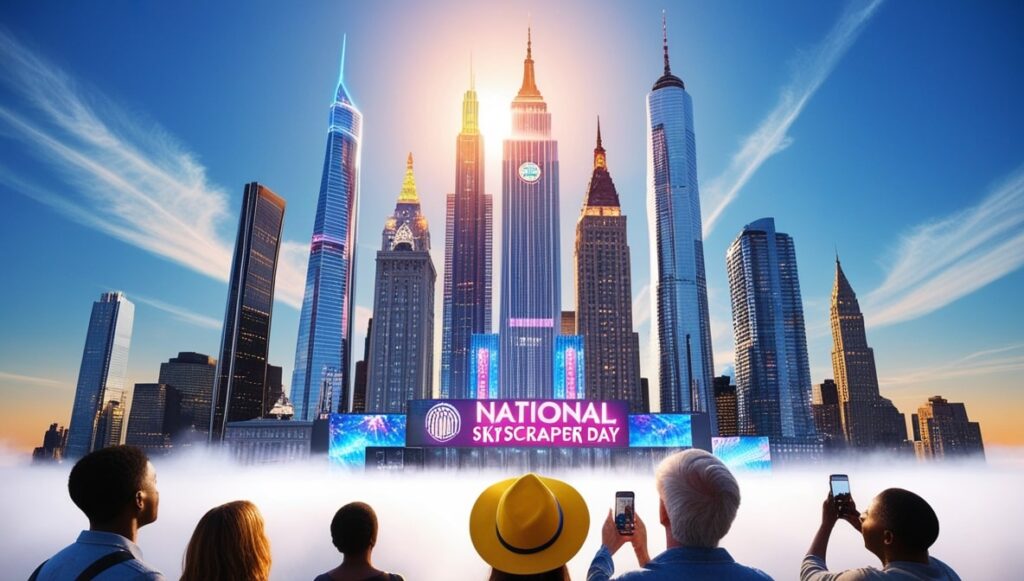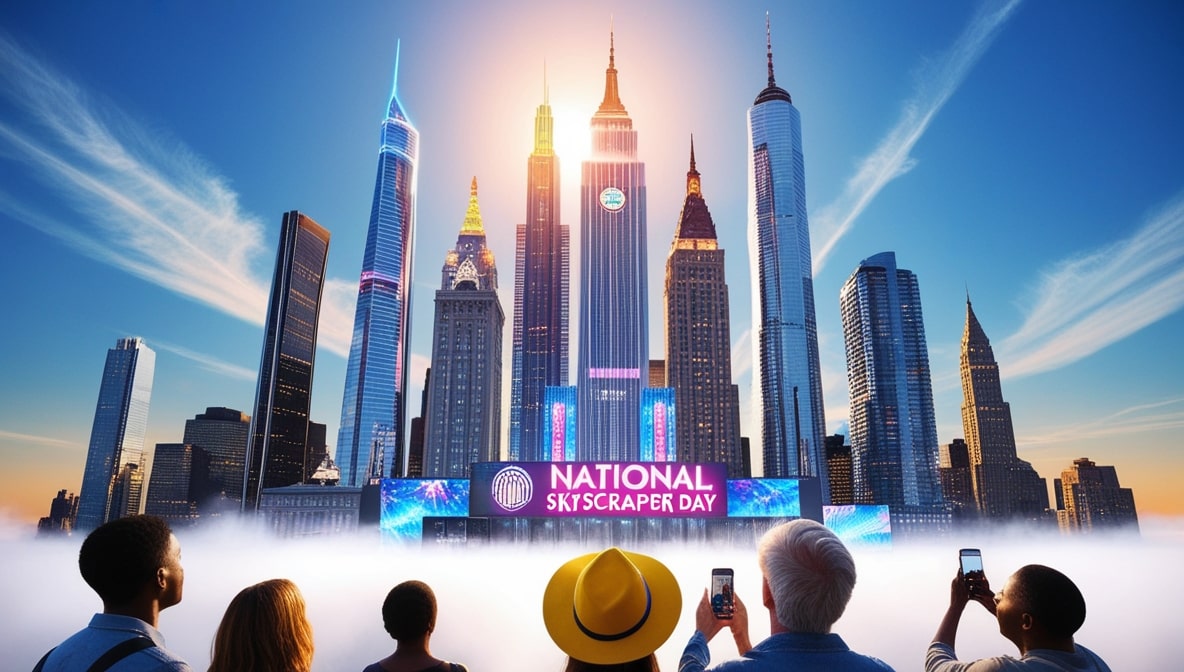National Skyscraper Day, observed annually on September 3rd, is a tribute to the towering structures that define our cityscapes. These architectural marvels not only symbolize human ingenuity and ambition but also serve as the backbone of modern urban living. On this day, we celebrate the art and science of skyscraper design, and construction, and the impact these giants have on our daily lives.

The History Behind National Skyscraper Day
The origins of National Skyscraper Day are closely tied to the birth of the modern skyscraper. The first skyscraper, the Home Insurance Building, was constructed in Chicago in 1885. This 10-story building marked the beginning of a new era in architecture, where steel frames allowed buildings to reach unprecedented heights. The day is also a nod to Louis Sullivan, known as the “father of skyscrapers,” whose birthday coincides with the celebration.
The Evolution of Skyscrapers
From the humble beginnings of the Home Insurance Building to the breathtaking Burj Khalifa in Dubai, skyscrapers have evolved dramatically over the past century. Here’s a brief overview of this evolution:
- Early 20th Century: The race to the sky began with iconic structures like the Chrysler Building and the Empire State Building in New York City. These Art Deco masterpieces were symbols of the booming American economy.
- Mid 20th Century: Post-war development saw the rise of International Style skyscrapers, characterized by their minimalist glass-and-steel facades, such as the Willis Tower (formerly Sears Tower) in Chicago.
- 21st Century: Today, skyscrapers are not just tall buildings but sustainable ecosystems. The advent of green technology has led to the development of eco-friendly skyscrapers like The Shard in London and One World Trade Center in New York.
Why Skyscrapers Matter
Skyscrapers are more than just architectural feats; they are symbols of progress and urbanization. They:
- Maximize Space: In densely populated cities, skyscrapers provide a solution to space constraints, allowing more people to live and work in smaller areas.
- Boost Economic Growth: These structures often house corporate headquarters, luxury hotels, and high-end residences, contributing significantly to the local economy.
- Define City Skylines: Iconic skyscrapers are landmarks that define the identity of a city, attracting tourists and creating a unique visual appeal.
Fun Facts About Skyscrapers
- Tallest Skyscraper: As of 2024, the Burj Khalifa in Dubai holds the title of the world’s tallest building, standing at a staggering 828 meters (2,717 feet).
- Sky-high Prices: The most expensive skyscraper ever built is the Abraj Al Bait in Mecca, Saudi Arabia, costing over $15 billion.
- Green Giants: The Bosco Verticale in Milan, Italy, is a “vertical forest” that houses over 20,000 plants on its facade.
How to Celebrate National Skyscraper Day
- Take a Tour: If you live near a city with iconic skyscrapers, consider taking a tour to learn about their history and architecture.
- Photography Challenge: Capture the beauty of your city’s skyline and share it on social media with the hashtag #NationalSkyscraperDay.
- Learn About Architecture: Dive into books or documentaries about skyscraper design and the engineers who make them possible.
Inspiring Quotes About Skyscrapers
- “A skyscraper is a machine that makes the land pay.” — Cass Gilbert
- “The skyscraper establishes the block, the block creates the street, the street offers itself to man.” — Louis Sullivan
- “Great architecture is like a tree; it leaves an impression.” — Norman Foster
Conclusion
National Skyscraper Day is a reminder of how far we’ve come in the field of architecture and urban development. As we look up at these towering giants, we’re inspired not only by their grandeur but by the human spirit that dared to reach for the sky. Celebrate the day by appreciating the skyscrapers around you and recognizing the brilliance behind their creation.
I’m Jagpreet, an engineer and web developer with a passion for sharing insights on lifestyle. Through my website, I write articles and share news that inspire, inform, and help readers improve their everyday lives.
